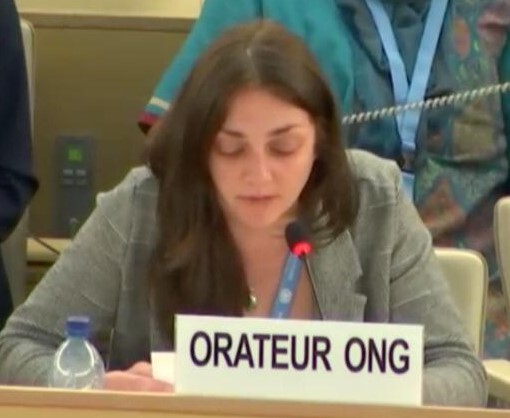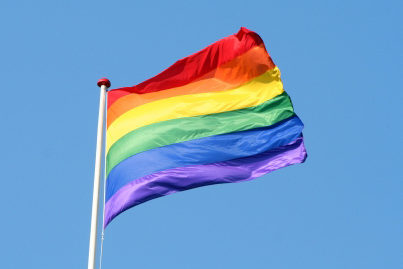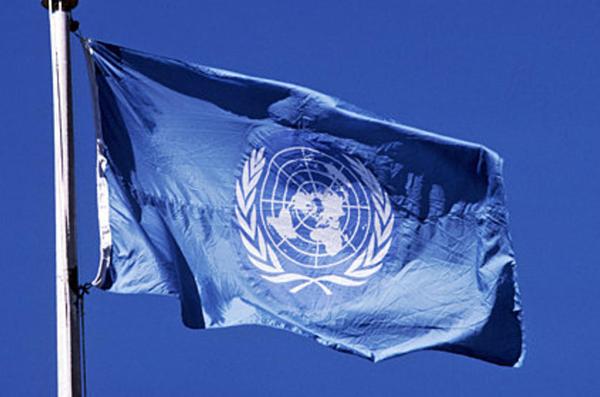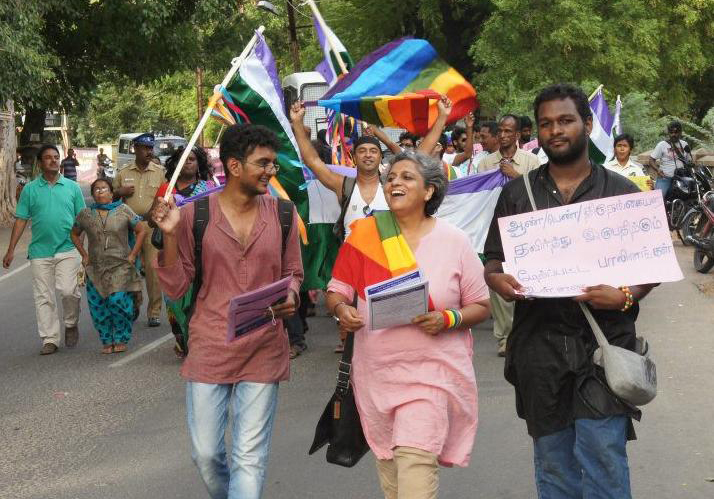
Mar 6, 2020 | Advocacy, Non-legal submissions
Speaking at the UN Human Rights Council, the ICJ today urged States to decriminalize consensual sexual relations, including between people of the same sex.
The statement, delivered during an interactive dialogue with the UN Special Rapporteur on the Right to Privacy, read as follows:
“The ICJ welcomes the report of the Special Rapporteur on privacy, particularly the recommendation to repeal laws criminalizing consensual sexual activity, cluding between people of the same sex.
The ICJ agrees that criminalization of consensual same-sex relations violates international law and standards, including the rights to privacy, non-discrimination and equal protection.
The ICJ advocates for the abolition of laws that criminalize consensual sexual relations – including between people of the same sex – that still exist in many countries around the world.
In Indonesia, for example, a draft Penal Code currently includes a provision that would criminalize “extramarital” sexual acts between consenting persons, including persons of the same sex. We note that the draft provision may superficially appear to be gender neutral because it would penalize both men and women, but studies have shown that, in practice, criminalization of “adultery” and extramarital sexual relations typically results in disparate, discriminatory impacts against women and girls. Malaysia and other States that are former British colonies in Asia, likewise, have similar provisions in their criminal laws penalizing consensual sexual relations.
Like the Special Rapporteur, the ICJ in urges States to repeal laws that criminalize consensual sexual activity – including between people of the same sex.”

Jun 13, 2019 | News
The ICJ today applauded the 11 June judgment of the Botswana High Court striking down criminal law provisions criminalizing same-sex relations.
Rightly, the Court considered that, notwithstanding the fact that the provisions at issues on their face criminalized consensual anal penetration, irrespective of the gender of those involved, the law did in fact target and disproportionately affect same-sex relations.
The judgment follows shortly after the Kenyan High Court refused to invalidate an almost identical criminal provision in judgment handed down on 24 May.
“The Botswana High Court’s judgment reaffirms the universality of the rights to be free from discrimination, dignity, privacy and equality, and directly rebuts the often-made false claim that homosexuality is ‘un-African’,” said ICJ Africa Director Arnold Tsunga.
“The ICJ commends the Court, and encourages all African states to repeal archaic criminal provisions criminalizing same-sex sexual intercourse often introduced into their legal systems by colonial powers,” he added.
In a decision referencing international human rights law and standards, and citing a growing wave of global jurisprudence on the unconstitutionality of the criminalization of consensual same-sex relations, identity and expression, the Court concluded that sections 164(a); 164(c), 165 and 167 of the Botswana Penal Code violated the rights to dignity, liberty and equality of homosexual men.
Letsweletse Motshidiemang, a 24 year-old university student who identifies as homosexual, and is currently in a relationship with a man, brought the case before the Court. Advocacy organization “Lesbians, Gays and Bisexuals Of Botswana” (LEGABIBO) was admitted as amicus curiae, and supported Motshidiemang’s case.
Despite partial legislative recognition of the need to protect people’s rights, regardless of sexual orientation, and comments made by Botswana President Mokgweetsi Masisi late last year that, “there are also many people of same sex relationships in this country, who have been violated and have also suffered in silence for fear of being discriminated. Just like other citizens, they deserve to have their rights protected”, the Attorney General (AG) had opposed Motshidiemang’s challenge, describing the case as “cry babies”.
In a fitting rebuke of this position, the Court indicated that the AG had not produced a “scintilla or iota of justification” for its defense of the offending provisions and, instead relied on “bare assertion and/or speculations” about public morality.
Given the substantial evidence presented to the Court by the applicant and amicus curiae about the harmful effects of continued criminalization of same-sex relations, the Court observed that it “perpetuates stigma and shame against homosexuals and renders them recluse and outcasts”, finding that “there is no victim in consensual same sex intercourse inter se adults”.
Concluding that such discrimination against lesbian, gay, bisexual and transgender (LGBT) persons violates sexual autonomy and their “right to choose a sexual partner” the Court found that the provisions go “to the core of [homosexual persons’] worth as a human being[s] and “pollutes compassion” in Botswanan society.
“The judgment is a victory for LGBT persons in Botswana whose consistent advocacy ground firmly in human rights should be applauded. This judgment should catalyze further action from the Botswana authorities to ensure the full enjoyment of all human rights by LGBT persons in Botswana,” said Tsunga.
Contact:
Arnold Tsunga, ICJ Africa Director, t: +63 77 728 3249 ; e: arnold.tsunga(a)icj.org
Timothy Fish Hodgson, ICJ Legal Adviser, t: +27828719905 ; e: timothy.hodgson(a)icj.org

Feb 13, 2019 | Advocacy
Entitled “Developing principles to address the detrimental impact on health, equality and human rights of criminalization with a focus on select conduct in the areas of sexuality, reproduction, drug use and HIV”, the ICJ statement was delivered today at the UN.
The ICJ statement, delivered during the Consultation on Human Rights in the HIV response organized by the UN High Commissioner for Human Rights in collaboration with UNAIDS, focused on the need to engage jurists in addressing the detrimental impact on equality, health and human rights, of criminalization of sexual and reproductive healthcare services, including abortion; of consensual sexual conduct, including consensual sex work, consensual sex outside marriage, consensual same-sex relations, and consensual adolescent sexual activity; of drug use, of possession of drugs for personal use; and of HIV non-disclosure, exposure and transmission.
Download the full statement:
Universal-ICJ statement HIV-Advocacy-2019-ENG

Jul 10, 2018 | News
The SC is set to reconsider the criminalization of consensual same-sex relationships between adults, in response to a writ petition with significant ramifications for addressing the full range of human rights violations based on sexual orientation or gender identity in India said the ICJ.
The Indian Supreme Court commenced hearing the case, Navtej Singh Johar v. Union of India, which is joined with five connected cases, today, concerning the constitutional validity of the criminalization of consensual same-sex relations between adults under Section 377 of the Indian Penal Code in response to writ petitions filed by several LGBTI individuals.
Section 377 criminalizes “carnal intercourse against the order of nature”. Section 377 is a relic of the British colonial penal code and is replicated in several former British colonies even though it was it was finally repealed in Northern Ireland in 1982, following repeals in Scotland in 1980 and England and Wales in 1967.
“Hopefully, the Indian Supreme Court will follow and build upon the strong precedent set by the Delhi High Court in the Naz Foundation v. Govt. of NCT of Delhi that declared Section 377 and the criminalization of consensual same-sex relationships to be in violation of the Indian Constitution as well as international law in 2009,” said Sam Zarifi, ICJ’s Secretary General.
“There are real grounds for optimism as the Indian Supreme court as recently as August 2017 handed a landmark judgment in Justice K.S. Puttaswamy and Another v. Union of India and Others that declared the right to determine one’s sexual orientation and gender identity as core to the right of privacy,” he added
The ICJ has documented how section 377 has created a climate in which arbitrary arrest, extortion, harassment and blackmail of LGBTI persons in India thrives.
“The Indian judiciary’s decision to read down section 377 in Naz Foundation v. Govt. of NCT of Delhi, which was then overruled by the Supreme Court, has been used by several other jurisdictions, such as Trinidad and Tobago as support for putting an end to criminalization of same-sex relationships. So the outcome of this petition before the Indian Supreme Court is of significance not just to people in India, but to the fight against discrimination around the world,” Zarifi said.
“But even a good decision by the Indian Supreme Court will not end the discrimination against people on the basis of their sexual orientation or gender identity in India. It’s time for the Indian Parliament to repeal section 377 in its entirety and engage in a wide-ranging review to consider which gaps, if any, need to be filled, for example with respect to acts constituting rape or other sexual offences,” he added.
Contact:
Maitreyi Gupta (Delhi), International Legal Adviser for India, t: +91 7756028369 ; e: maitreyi.gupta(a)icj.org
India-Supreme Court and Section377-News-press release-2018-ENG (full story with additional information, in PDF)








